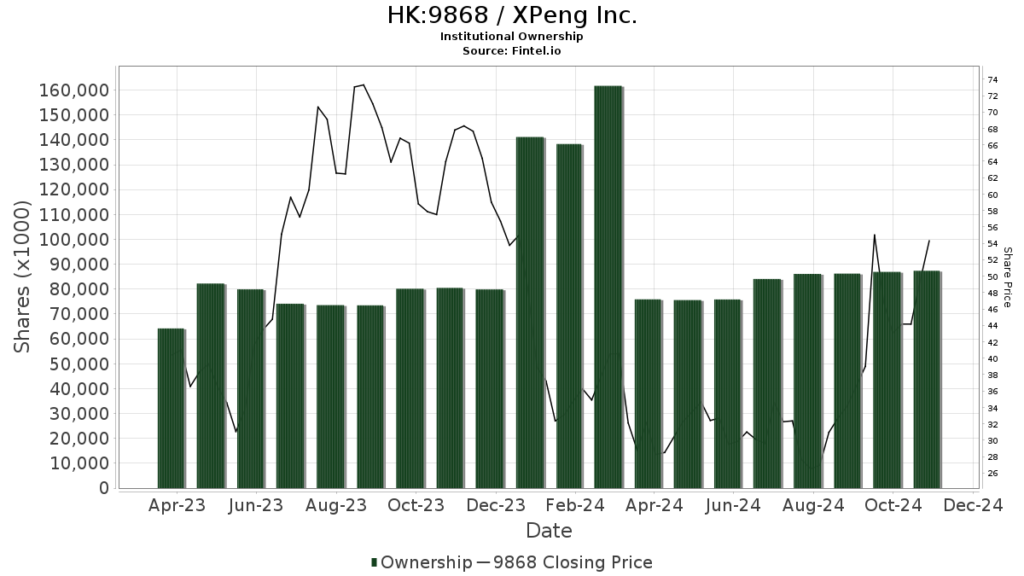Investors rode the wave of optimism for artificial intelligence (AI) stocks throughout the past year, spurred by the potential of this cutting-edge technology. However, as the bull market reaches its two-year milestone, a shift in sentiment is evident. Some investors, sensing a turn in the tides, are now eager to secure profits.
Against this backdrop, market leaders like Arm Holdings, Nvidia, Advanced Micro Devices, Broadcom, and Taiwan Semiconductor Manufacturing experienced significant dips in their stock prices. Arm Holdings witnessed a 6.7% drop, Nvidia tumbled by 4.9%, Advanced Micro Devices sank by 4.8%, Broadcom fell by 3.7%, and Taiwan Semiconductor dipped by 2.6% as of 12:50 p.m. ET on a turbulent Tuesday.
Export Restrictions Rattle the Industry
A jolt rippled through the market as reports surfaced regarding potential restrictions on the export of chips by the U.S. government. The Biden administration is contemplating narrowing the sales of advanced AI processors from industry giants like Nvidia, AMD, and others. This move aims to address apprehensions that advanced AI technology could potentially be wielded against U.S. interests.
The plan under consideration involves imposing a cap on the number of export licenses for distinct countries, driven by national security concerns. Notably, existing limitations already constrain the sale of AI chip technology to specific countries, including China and several others across Asia, the Middle East, and Africa.
The formulation of these restrictions is still nascent, with no final verdict rendered. However, discussions on the matter have gained momentum in recent weeks, fueling uncertainties across the AI landscape.
The Ripple Effect on Companies
For these AI-centric stocks, the potential clampdown on advanced AI chip sales carries profound implications:
- Nvidia, the primary supplier of graphics processing units (GPUs) critical for AI systems, could face a substantial blow as it commands a lion’s share of the data center GPU market.
- Advanced Micro Devices, in intense competition with Nvidia in the GPU arena, has recently steered towards prioritizing AI processors over legacy gaming chips. Constraining advanced processor sales could impair the company’s strategic pivot.
- Arm Holdings, a provider of chip designs for cutting-edge processors used by Nvidia and AMD, may witness revenue setbacks if sales face severe limitations.
- Broadcom, offering products like Ethernet switching and application-specific integrated circuits (ASICs) that complement GPUs in data centers, might experience a slowdown in sales if GPU demand wanes.
- Taiwan Semiconductor Manufacturing (TSMC), a dominant foundry responsible for a significant chunk of the world’s semiconductors and advanced AI processors, stands to encounter revenue constraints if processor sales are curbed.
History provides a glimmer of hope amidst the apprehensions. Despite previous episodes of U.S. governmental deliberations on chip restrictions, Nvidia managed to sustain triple-digit growth for five consecutive quarters. Furthermore, reports suggest that demand for Nvidia’s Blackwell chips has outstripped supply for the next year, underscoring the resilience in the AI chip market.
Considering valuations, with Arm Holdings, AMD, Nvidia, Broadcom, and TSMC trading at multiples of 96 times, 46 times, 46 times, 36 times, and 28 times forward earnings, respectively, TSMC emerges as a potential value proposition. However, when accounting for growth potential via the forward price/earnings-to-growth (PEG) ratio, all remaining stocks appear undervalued with multiples below the industry benchmark of 1.
As generative AI is in its infancy, its market value, estimated by experts at $1.3 trillion, might exceed expectations. Investing in top AI stocks and holding steadfast for the long haul could be a prudent strategy for investors seeking to capitalize on the burgeoning AI landscape.
Final Thoughts on Nvidia
Before delving into Nvidia stock, it’s worth considering the insights of the Motley Fool Stock Advisor team. While Nvidia doesn’t make the current list of their top 10 stock picks, their previous recommendations have yielded outstanding returns. On April 15, 2005, an investment of $1,000 in Nvidia would have burgeoned to an impressive $846,108 over the years.
The Stock Advisor service provides a blueprint for success, including portfolio-building guidance, regular analyst updates, and two new stock picks monthly. The service has significantly outperformed the S&P 500 since its inception in 2002.
With the tension surrounding AI stocks intensifying, caution coupled with strategic investment approaches could be key in navigating the evolving landscape of artificial intelligence.
*Stock Advisor returns as of October 14, 2024.




